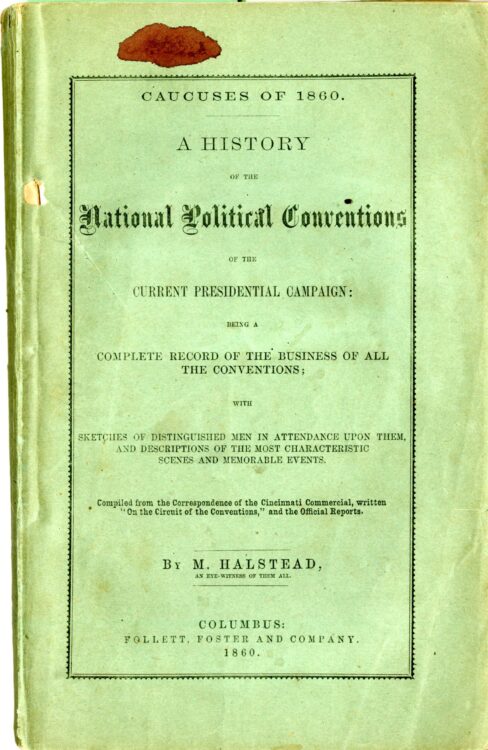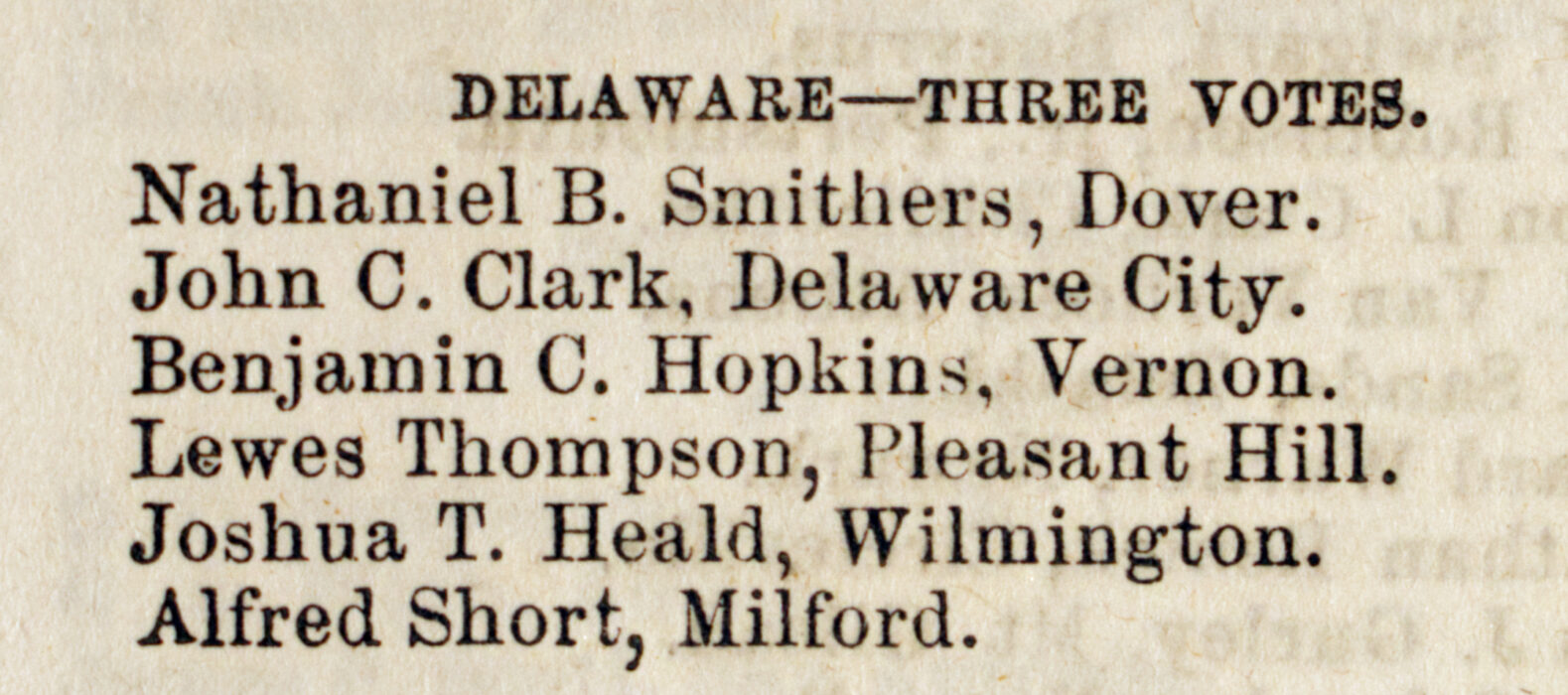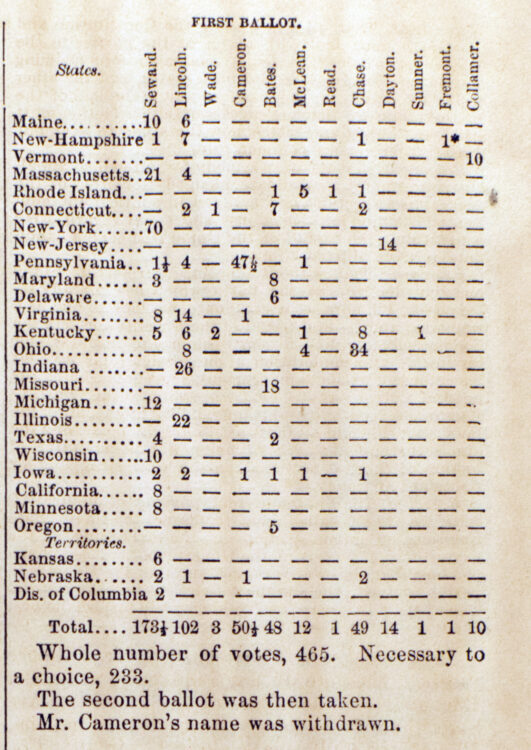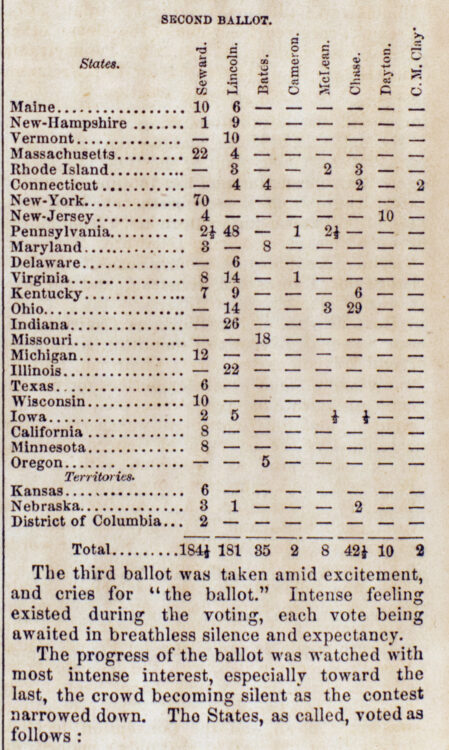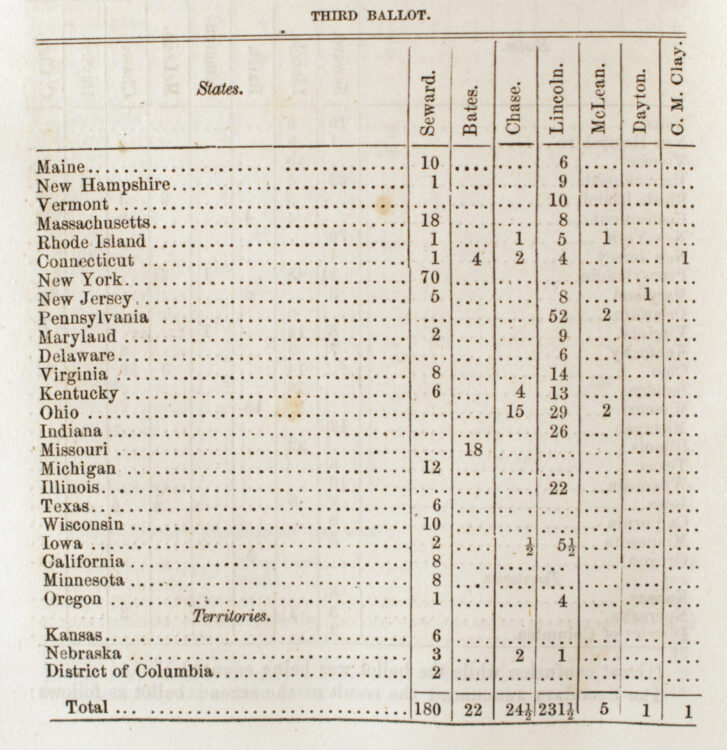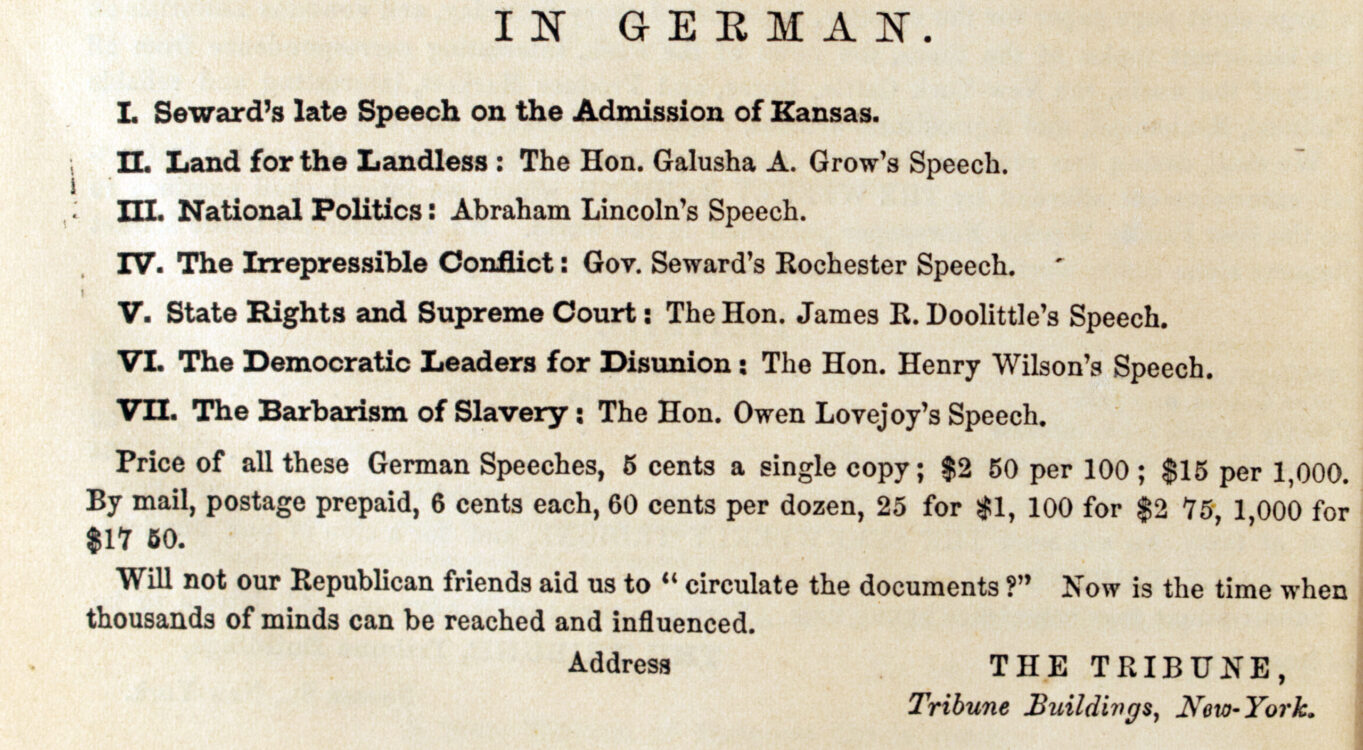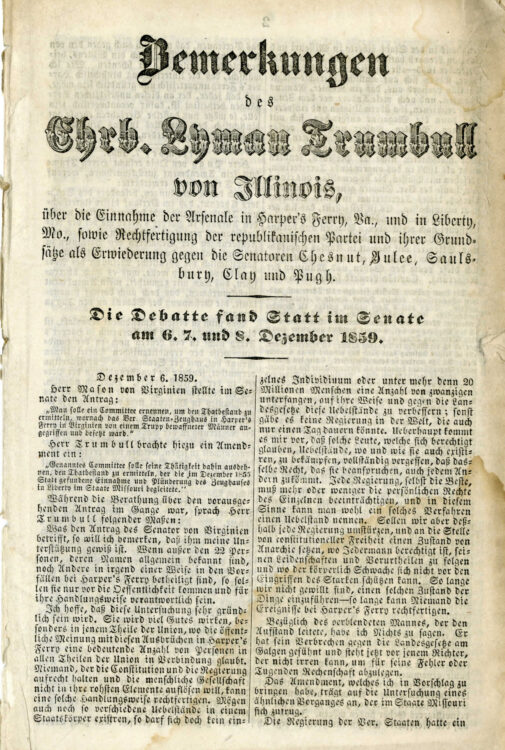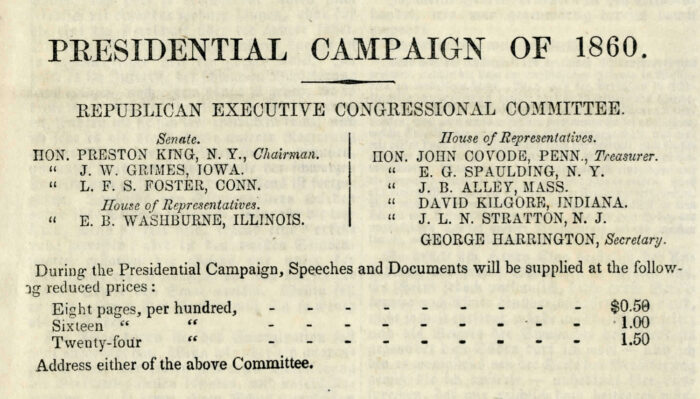Oldroyd, Osborn H. (Osborn Hamiline). Lincoln’s campaign; or, the political revolution of 1860. Chicago: Laird and Lee, 1896.
At the Illinois State Republican Convention held in Decatur, May 9-10, 1860, Lincoln received enthusiastic endorsement as his party’s choice for the presidency. All Illinois delegates to the national convention, to be held the following week, were instructed to use “all honorable means possible” to secure his nomination and vote for Lincoln as a block. It was at the state convention that Lincoln was hailed as the “Rail Candidate” and actual split rails appeared, thereafter associated with his campaign.
Achorn, Edward. The Lincoln Miracle: Inside the Republican Convention that Changed History. New York: Atlantic Monthly Press, 2023. Inscribed by the author “to the Lincoln Collection, February 8, 2024.” Gift of L. Rebecca Johnson Melvin.
Edward Achorn's recent The Lincoln Miracle draws attention to the significant political consequence of Lincoln's nomination as the Republican Party candidate for president at the Chicago national convention, May 16-18, 1860.
In a crowded field of 12 potential nominees whose names appeared on the first ballot, Lincoln was the underdog for the Republican nomination. Heavily favored was former governor and U.S. Senator William H. Seward of New York, an ardent abolitionist. Other strong rivals included Senator Simon Cameron of Pennsylvania, former Ohio governor Salmon P. Chase, and former U.S. Representative Edward Bates of Missouri.
Detail of former N.Y. Governor and U.S. Senator William H. Seward from “The Members of Lincoln’s First Cabinet” in The Soldier in Our Civil War: A Pictorial History of the Conflict, 1861-1865, New York: J.H. Brown, 1884. Gift of the Hon. William L. Witham, Jr.
Lincoln, who was not present at the national convention in Chicago, was championed by Illinois Judge David Davis, who strategically advanced Lincoln as a second-choice candidate and waited for the front runners to work against each other. New-York Tribune editor Horace Greeley undermined his political adversaries, Senator Seward and New York party boss Thurlow Weed, highlighting vulnerabilities in Seward, Cameron, Chase, and Bates as being too radical and divisive to carry the national election.
Maurer, Louis. “The Impending crisis – or caught in the act.” [New York]: Currier & Ives, 1860. MSS 0521 Lincoln Club of Delaware Abraham Lincoln collection. Digital image courtesy Library of Congress
German-born Louis Maurer (1832-1932) worked as a lithographer for Currier & Ives, publishers of popular prints that were sold by shops, street vendors, and through catalogs. At 10 cents for black and white prints, or 20 cents for hand-tinted lithographs, these were affordable “pictures for the people.” Currier & Ives published 17 Maurer cartoons related to the presidential election of 1860, including this representation of Horace Greeley “caught in the act” of undermining William Seward’s candidacy for the Republican nomination. The title, “The Impending Crisis,” is from Hinton Rowan Helper’s widely read 1857 anti-slavery book.
To the left of Greeley (standing, center) is Republican founder of the New York Daily News, Henry J. Raymond, who says that Greeley pushed Seward (thrashing in the water) over “for revenge,” alluding to Greeley’s resentment of Seward and New York party boss Thurlow Weed’s non-support for Greeley political ambitions. James Watson Webb, also a Republican newspaper editor and New York politician, confirms he “saw him do it,” referencing Greeley’s maneuvering at the Chicago convention.
Halstead, Murat. Caucuses of 1860. A History of the national political conventions of the current presidential campaign: being a complete record of the business of all the conventions; with sketches of distinguished men in attendance upon them, and descriptions of the most characteristic scenes and memorable events. Columbus, Ohio: Follett, Foster and Company, 1860.
Lincoln placed second on the first ballot, but Seward was far short of the 233 votes needed to carry the nomination. The candidates dropped to 8 on the second ballot, with Seward leading Lincoln by only 3 votes, still below the required 233. With the third ballot, Lincoln gained the majority when Ohio switched its 4 votes to Lincoln. The stunning turn of events and the raucous reception of Lincoln's nomination are vividly recounted in the Tribune's Political text-book for 1860 and in Murat Halstead's contemporary Caucuses of 1860, as well as Achorn's 2023 best-seller, The Lincoln Miracle.
Halstead’s comprehensive history of the national political conventions reported the names of Delaware’s six delegates, who supported Edward Bates of Missouri on the first ballot, but switched to Lincoln on the second and third ballots.
Coverage of the Chicago convention is reported with excitement as Lincoln emerged the Party nominee after three ballots.
As seen at the Chicago convention, support from German-speaking Midwestern delegates was important to the nomination of Lincoln and to the national campaign. This advertisement on the verso of the Political text-book for 1860 shows some of the political tracts translated into German and circulated to influence "thousands of minds" to the Republican ticket.
Trumbull, Lyman. Bemerkungen des Ehrb. Lymun Trumbull von Illinois: uber die einnahme der Arsenale in Harper's Ferry, VA, und in Liberty, Mo., : sowie Rechtfertigung der Republickanischen Partie und ihrer Grundsatze als Erwiederung gegen die Senatoren Chestnut, Yulee, Saulsbury, Clay, und Pugh : die debatte fand Statt im Senate am 6. 7. und 8 Dezember 1859. Washington: Republican Congressional Executive Committee, 1860.
This is the first page of a German translation of a political speech by Republican U.S. Senator Lyman Trumbull of Illinois. It was published and distributed by the Republican Congressional Executive Committee in 1860. Members of the Committee and the prices for multiple copies of the speech appear on the verso of the publication.
The Republican Congressional Executive Committee issued many similar pamphlets in the German language for the 1860 presidential campaign. German immigrants, many of whom came to America after the 1848 revolutions, generally adhered to Free Soil principles as they wanted land in the Western territories for themselves. This pamphlet prints Trumbull's speech upholding Republican principles in the wake of John Brown's Harper's Ferry invasion. It is interesting to note that one of the senators against whom Trumbull spoke was Democrat Willard Saulsbury, Sr., of Delaware, who became a major critic of President Lincoln.

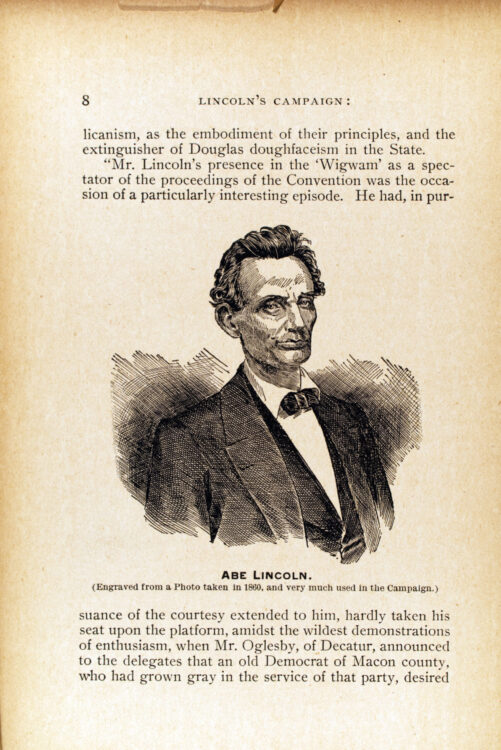
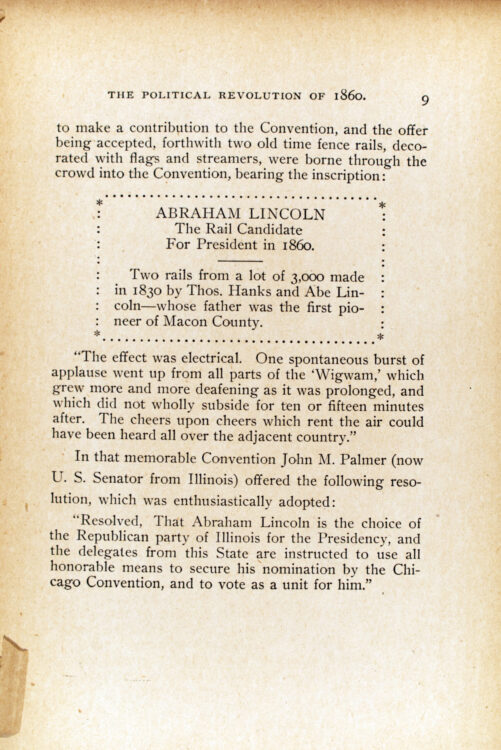
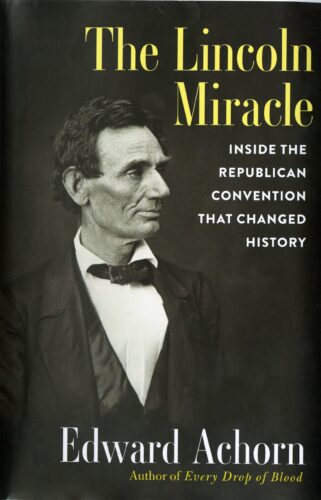
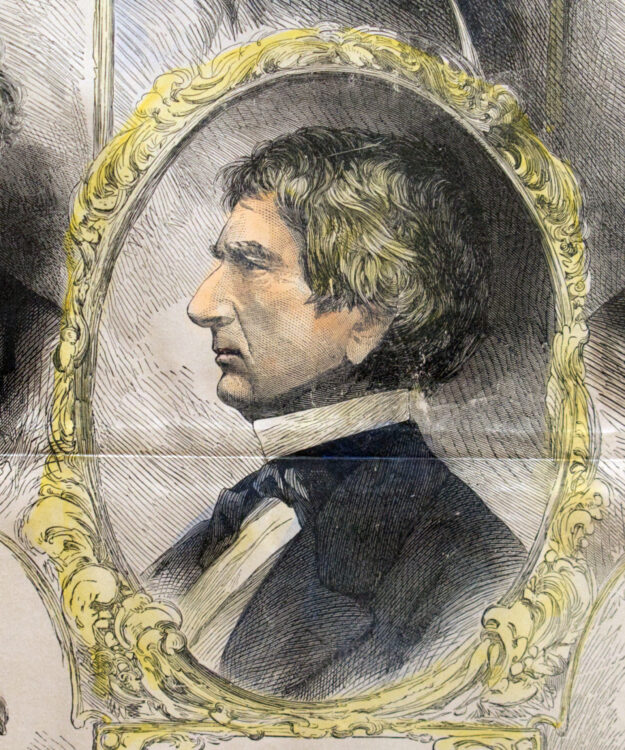
![[Maurer, Louis.] “The Impending crisis – or caught in the act.” [New York]: Currier and Ives, 1860. MSS 0521 Lincoln Club of Delaware Abraham Lincoln collection. Image courtesy Library of Congress. [Maurer, Louis.] “The Impending crisis – or caught in the act.” [New York]: Currier and Ives, 1860. MSS 0521 Lincoln Club of Delaware Abraham Lincoln collection. Image courtesy Library of Congress.](https://exhibitions.lib.udel.edu/the-rail-splitter-surprise/wp-content/uploads/sites/289/2024/06/LOC-Impending-Crisis.jpg)
